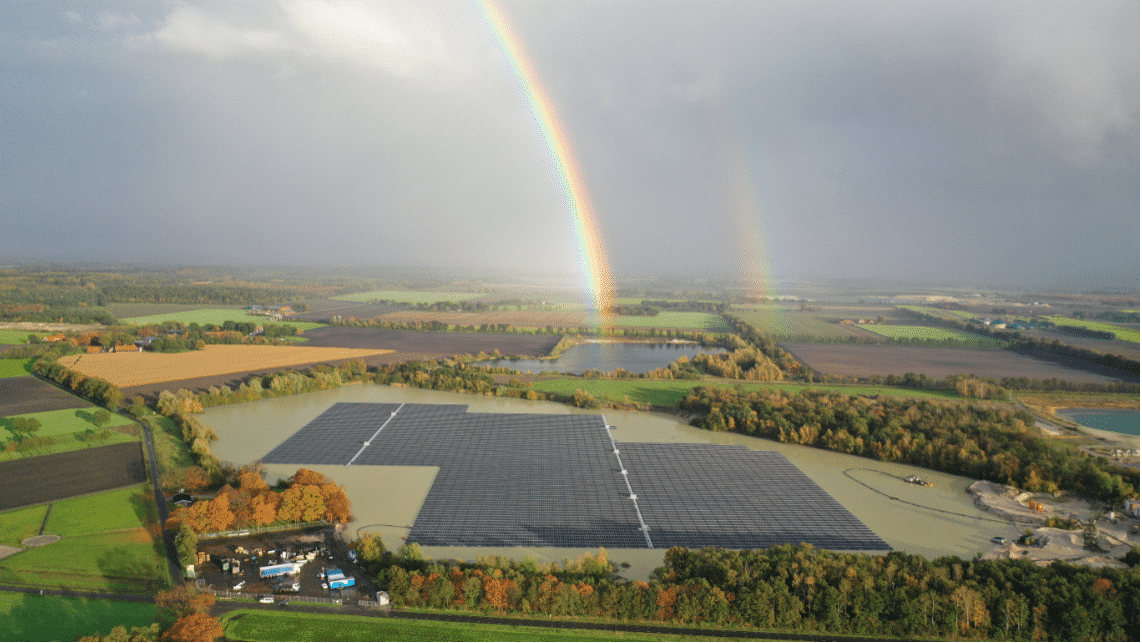From pv magazine Germany
Baywa re has connected two more floating photovoltaic power plants to the grid in the Netherlands. The projects, developed by the Dutch subsidiary Groenleven, have a combined capacity of 29.2 MW and rely on a total of 70,000 solar modules.
Overall, the Munich-based company has implemented six floating photovoltaic systems in the country, with a total output of almost 100 MW. This makes Baywa re one of the market leaders in Europe, where this segment is still in its infancy.
The floating solar park “Nij Beets” is located on a lake that is also used to mine sand. The modules cover 23% of the available water surface. Special modules and a special construction were used so that enough light and air continues to reach the water surface. There was also enough space left near the shore to protect flora and fauna.
Baywa re and Groenleven are also working together with the Institute for Nature Education and Sustainability (IVN) to improve biodiversity through floating solar parks. The aim is to investigate possible effects on the flora and fauna over the next five years. In addition, all project partners have committed to participating in a community fund for the local population.
Baywa re sees floating photovoltaic systems as a contribution to defusing the debate about land use for the expansion of renewable energies in densely populated regions. “Carefully planned and built, floating PV can be just as cost-efficient as regular ground-mounted systems over an operating period of 25-30 years,” explained Benedikt Ortmann, global director of solar projects at Baywa re.
The company is seeing great interest in the financial markets for floating photovoltaic projects. “It enables a win-win situation for the environment, the local communities and, above all, for a cost-efficient energy transition,” Ortmann continued.
BayWa re and GroenLeven are also building five pilot agrivoltaic power projects in the Netherlands, where they are testing five different types of crops: blueberries, red currants, raspberries, strawberries, and blackberries.
This content is protected by copyright and may not be reused. If you want to cooperate with us and would like to reuse some of our content, please contact: editors@pv-magazine.com.




1 comment
By submitting this form you agree to pv magazine using your data for the purposes of publishing your comment.
Your personal data will only be disclosed or otherwise transmitted to third parties for the purposes of spam filtering or if this is necessary for technical maintenance of the website. Any other transfer to third parties will not take place unless this is justified on the basis of applicable data protection regulations or if pv magazine is legally obliged to do so.
You may revoke this consent at any time with effect for the future, in which case your personal data will be deleted immediately. Otherwise, your data will be deleted if pv magazine has processed your request or the purpose of data storage is fulfilled.
Further information on data privacy can be found in our Data Protection Policy.